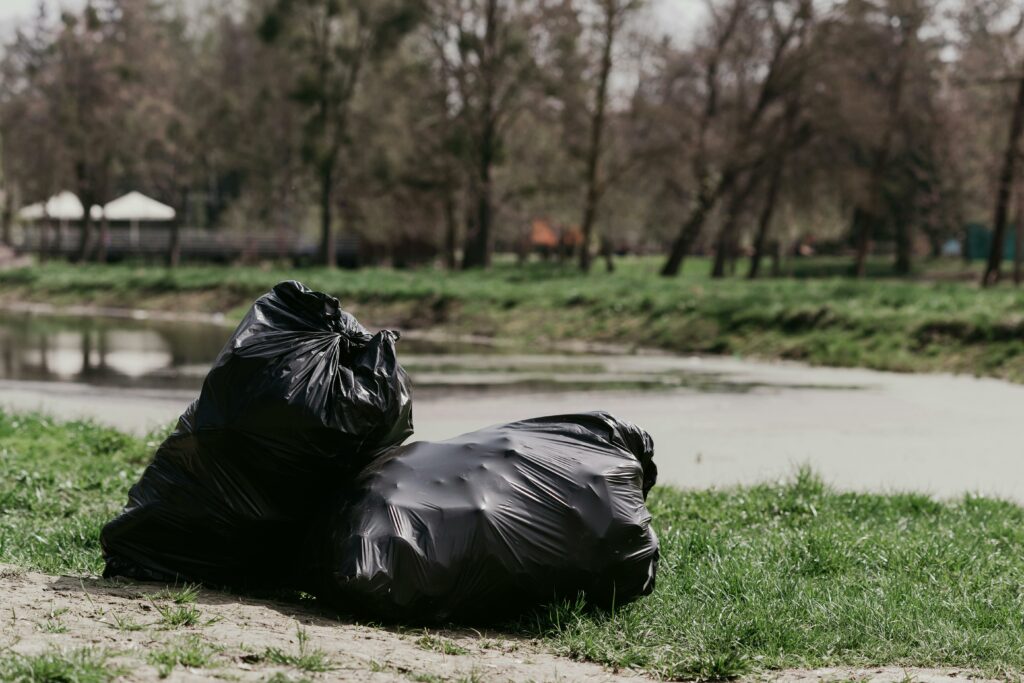Bin bags, also known as refuse bags, garbage bags, or trash bags, play a crucial role in waste management. Designed to contain and transport various types of waste, these bags ensure cleanliness and hygiene in our homes, offices, and public spaces. Whether you are disposing of household waste, commercial waste, or even hazardous materials, choosing the right bin bag is essential for efficient waste disposal. In this comprehensive buying guide, we will explore the different types of refuse bags, factors to consider when choosing them, their water resistance, eco-friendliness, proper disposal and recycling methods, as well as tips for using refuse bags effectively.
Different Types Of Bin Bags – Refuse Black Bags, Garbage Bags, Trash Bags
Bin bags come in different types, each tailored to specific waste disposal needs. People often use the terms “refuse black bags,” “garbage bags,” and “trash bags” interchangeably to refer to bags designed for general waste disposal. These bags are typically black in colour, made from durable plastic materials, and available in various sizes and thicknesses. Refuse black bags are commonly used in households, offices, and public spaces to collect non-recyclable waste such as food scraps, paper, and packaging materials. Garbage bags and trash bags serve the same purpose but may have different names depending on regional preferences.
Factors To Consider When Choosing Refuse Bags – Size, Thickness, Capacity
When choosing refuse bags, several factors should be taken into consideration to ensure they meet your waste disposal requirements. The size of the bag should match the size of your bin or waste container to ensure a proper fit. If the bag is too small, it may not cover the entire bin, leading to spillage and mess. On the other hand, if the bag is too large, it may be difficult to tie and may waste unnecessary plastic. Additionally, the thickness of the bag is crucial for durability and preventing leaks. Thicker bags are more suitable for heavier waste, such as glass bottles or sharp objects. Lastly, consider the bag’s capacity, which indicates how much waste it can hold. It’s essential to choose a bag with sufficient capacity to avoid overflowing and potential breakage.
Are Bin Bags Waterproof? Exploring The Different Levels Of Water Resistance
One common concern when it comes to bin bags is their water resistance. While most bin bags are not entirely waterproof, they do offer varying levels of water resistance. This means that in normal circumstances, bin bags will contain moisture from wet waste, preventing it from leaking onto the floor or inside the bin. However, they may not withstand prolonged exposure to water or heavy rainfall. Some refuse bags are designed with enhanced water resistance, making them suitable for outdoor use or in areas prone to moisture. If you anticipate dealing with wet waste or storing bins outdoors, consider opting for refuse bags specifically labelled as “water-resistant” or “heavy-duty” to minimise the risk of leaks and unpleasant odours.
Biodegradable And Eco-Friendly Refuse Bags – A Sustainable Choice
As environmental awareness grows, many individuals and businesses are seeking more sustainable alternatives to traditional plastic refuse bags. Biodegradable refuse bags, made from plant-based materials such as cornstarch, offer a greener option for waste disposal. These bags are designed to break down naturally over time, reducing the environmental impact of plastic waste. Additionally, some refuse bags are labelled as eco-friendly, indicating that they are made from recycled materials. When choosing eco-friendly refuse bags, ensure they meet recognized environmental standards and certifications to ensure their authenticity. Making the switch to biodegradable or eco-friendly refuse bags contributes to a more sustainable waste management system and helps protect our planet for future generations.
Proper Disposal And Recycling Of Bin Bags
Proper disposal and recycling of bin bags are essential to minimise their impact on the environment. When disposing of bin bags, ensure that they are securely closed to prevent any waste from spilling out. If possible, separate recyclable and non-recyclable waste before disposing of it. Some bin bags are specifically designed for recycling, marked with recycling symbols or instructions. Check with your local waste management guidelines to determine the proper disposal methods for bin bags in your area. Additionally, consider reusing bin bags whenever possible to reduce waste and save resources. By following proper disposal and recycling practices, we can contribute to a cleaner and more sustainable environment.
Tips For Using Bin Bags Effectively – Preventing Leaks And Odours
To make the most of your bin bags and ensure a clean waste management process, here are some helpful tips:
- Double bagging: For heavy or sharp waste, consider using two bin bags to provide an extra layer of protection against leaks and tears.
- Tie the bag securely: After filling the bag, tie it securely to prevent any spillage or odours. A tight knot or a twist tie can help keep the bag sealed.
- Use odour absorbers: To combat unpleasant odours, place odour-absorbing materials such as baking soda or scented pouches at the bottom of the bin bag.
- Clean the bin regularly: Regularly clean and disinfect your waste bin to prevent the buildup of bacteria and odours. This will help keep your bin bags fresh and hygienic.
- Store bins in a dry area: If possible, store your bins in a dry area to minimise the exposure of bin bags to moisture, reducing the risk of leaks.
By implementing these tips, you can maximise the effectiveness of your bin bags and maintain a clean and odour-free waste management system.
Key Takeaway
Choosing the right refuse bags is crucial for effective waste management. Consider the size, thickness, and capacity of the bags to ensure a proper fit for your bins. If water resistance is a concern, opt for bags labelled as “water-resistant” or “heavy-duty.” For a more sustainable option, biodegradable or eco-friendly bin bags are the way to go. Remember to dispose of bags properly and recycle them whenever possible. By following these guidelines and implementing the tips provided, you can find the perfect bin bags to meet your waste disposal needs while contributing to a cleaner and greener environment.

